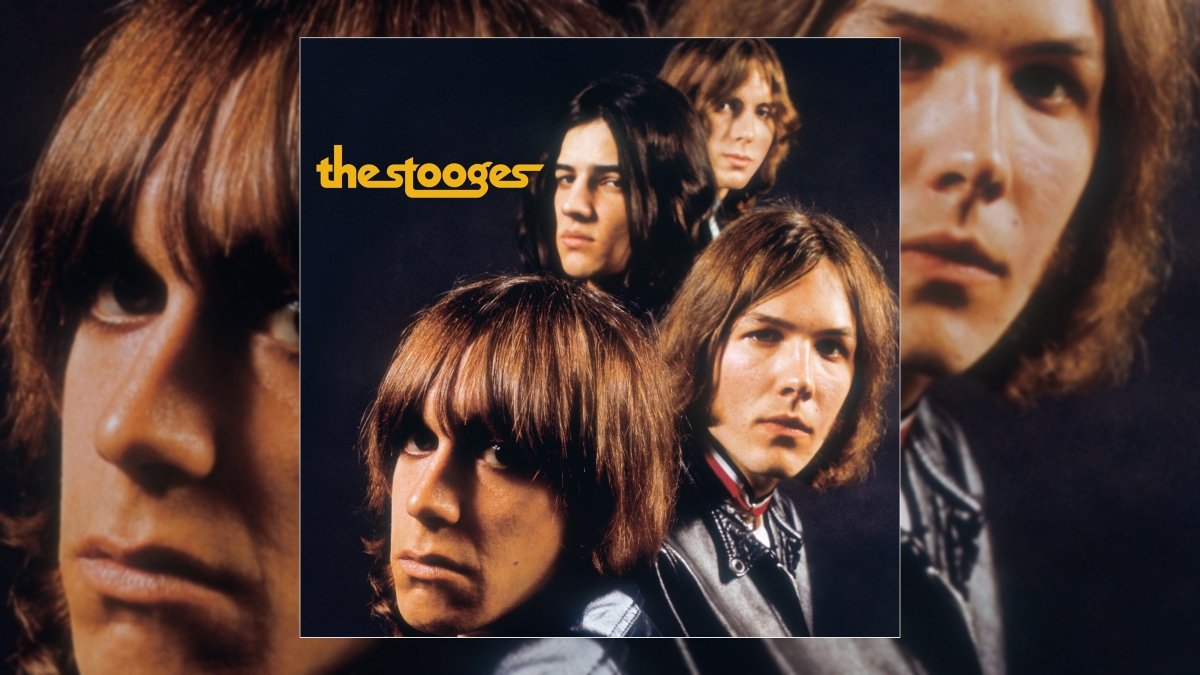Album Essentials: The Stooges (1969)

By Dave Swanson - Summit FM Contributor
Inspired by the likes of the Kinks, the Sonics, and raw blues, the Stooges formed in 1967 but remained somewhat dormant until Pop experienced an inspiring moment. After seeing the Doors, everything changed. "I just thought, well, this is so brazen, there is no excuse for us not to do it anymore," he said in a 1995 interview. Originally called the Psychedelic Stooges, the band made their public debut on Halloween of 1967 and quickly became friends with fellow Detroit rockers the MC5, sharing the stage with them and helping to build the legend and legacy of the Detroit scene of the late '60s. It was the MC5 who helped push the Stooges further. When Danny Fields was scouting the MC5 for Elektra Records, they famously told him, "If you like us, you'll love our little brother band," referring to the Stooges. In the end, Fields signed both bands for a bargain-bin price of $25,000: $20,000 for the MC5 and $5,000 for the Stooges.
Though a more psychedelic and meandering tendency bogged down the band's initial attack, they quickly fine-tuned things into the attack they would be forever known for. The band shaped their debut with former Velvet Underground member John Cale acting as producer. As recording progressed, they soon realized they were short on salvageable material. At some point, label president Jac Holzman told the band they had five days to get it together. In that time, they came up with the album's second half, including 'Real Cool Time,' 'Not Right,' and 'Little Doll.' Elsewhere, 'Ann' was reworked from an earlier incarnation, and the eerie ten-minute lysergic drone 'We Will Fall' shone a light on the band's more experimental side.
History tells the true tale here. Though it seemed like a good match on paper, John Cale's initial album mix lacked the punch and power needed. Elektra rejected the mix, and Holzman returned to the studio with Iggy to remix the whole thing. That is the version we have known for years. Those original Cale mixes would ultimately surface on an anniversary re-master as bonus material. While those versions are interesting, they made the right choice back in 1969. 8 songs clocking in at just over a half hour, ten minutes of which was 'We Will Fall,' made for a take no prisoners attack.
Songs like 'I Wanna Be Your Dog,' '1969,' and ‘No Fun' set the standard for any band eager to disrupt the norm, from the Ramones to the White Stripes and beyond. Their attitude and aggression were unlike anything else at the time. The MC5 certainly brought energy, but they were more polished musicians and performers. The Stooges were simply punks with guitars and drums, featuring a raw talent front and center. Iggy was relentless in his style and delivery.
While Iggy drew heavily from Jim Morrison, he distilled it down to a more primal essence. The intellectual nuances of Morrison are replaced by a caveman aesthetic—admittedly, a very articulate and intelligent caveman, but devoid of any clichéd pretense of 'art.' Even where the Stooges borrowed significantly from James Brown's showmanship, they simply threw it all on the floor and picked it up as they went. And let’s not overlook the raw and distinctive guitar style of Ron Asheton, with his brother Scott pounding the drums into submission and Dave Alexander's jazz-inspired, flowing bass. Unfortunately, Iggy is the last man standing.
In the instant information age, it's difficult to explain how new, strange, and groundbreaking someone like Iggy was. You would hear stories of his behavior or read about an incident in Creem Magazine, but it was a legend being pieced together. An interesting side note pops to mind here: Three of the most unique frontmen in rock and roll—Peter Gabriel, Steven Tyler, and Iggy Pop — all started out as drummers. Talk about cutting loose once free!
Of course, the album sold poorly, but Elektra held onto them for a second album, the even more mind-blowing 'Funhouse,' released in 1970, which is where everything was firing on all cylinders, making it truly one of the greatest rock and roll albums ever made. The self-titled 1969 debut remains hugely important. It was ground zero for many bands that followed and more intense than most of what it would inspire. They didn't break the mold with Iggy; he broke it himself and never looked back. The Stooges’ debut was primal, inspirational, brutal, and essential.






